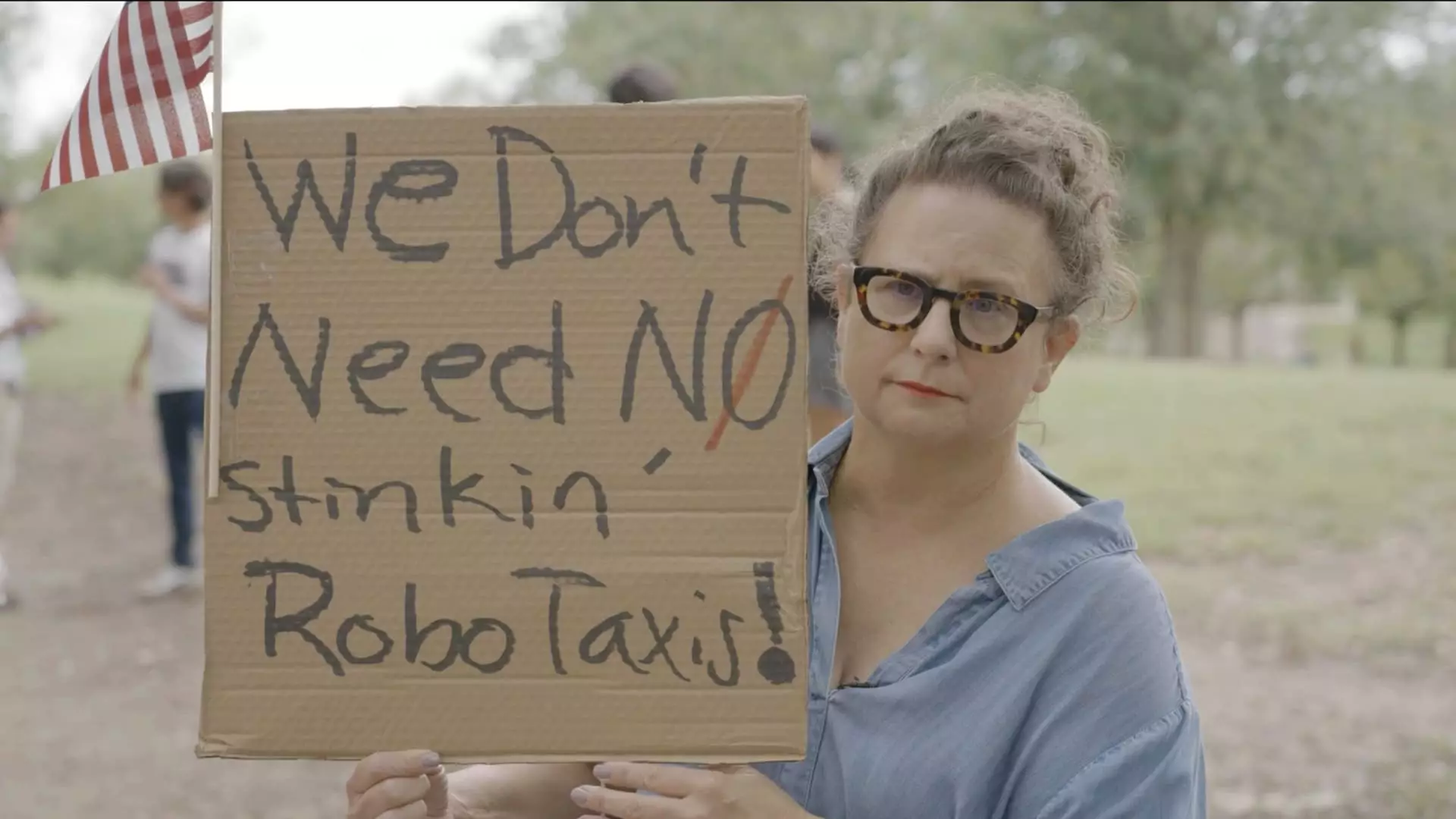Elon Musk is once more pushing the envelope with Tesla’s impending pilot robotaxi service set to commence in Austin, Texas, on June 22. While this ambitious initiative aims to revolutionize urban mobility through autonomous vehicles, the waves of unease are surfacing quicker than many anticipated. A cohort of protestors, from public safety advocates to political dissenters, has converged in downtown Austin, signaling a growing discontent about the implications of such technological advancements.
Safety Concerns on the Rise
Central to the protest is an escalating frustration about Tesla’s recent safety record. With Musk’s audacious vision of full autonomy and robotaxis in the pipeline, critics highlight that Tesla’s existing partially automated systems—such as Autopilot and the premium Full Self-Driving (FSD) option—have been implicated in numerous accidents, some tragically fatal. Critics like the members of the Dawn Project are articulating concerns that the company’s cavalier approach to safety and transparency could pose significant risks to the public. Demonstrations have now spotlighted instances where Tesla’s technology has failed, including a chilling incident presented during a protest where a Tesla vehicle neglected to stop for a school bus displaying a stop sign.
Political Overtones Fuel the Debate
The protests aren’t solely about the technological shortcomings of Tesla’s innovations; they also encapsulate a wider socio-political landscape. Multiple activists have voiced their discontent not just with Musk’s involvement with the Trump administration but also with what they perceive as an opacity in how safety measures are communicated and tested. The voices of protest resonate with hopes for increased regulatory scrutiny as opposed to unbridled tech experimentation.
Stephanie Gomez, a protestor, expressed a lack of faith in Tesla’s approach, remarking that the company’s safety standards seem questionable at best. This sentiment echoes a broader mistrust towards companies that prioritize rapid innovation over public well-being. Public trust in autonomous vehicle technology appears tethered to the transparency of developers, and right now, it seems Tesla’s narrative leaves much to be desired.
The Ethical Debate Surrounding Innovation
This clash between innovation and ethics poses a critical question: at what point does enthusiasm for technological advancement become recklessness? Undoubtedly, the world craves cutting-edge solutions to traffic congestion and carbon emissions, but if such solutions are rolled out without adequate safety assurances, the societal costs could be dire. The protests highlight a crucial dilemma—how much risk are we willing to accept in pursuit of progress?
The conversation surrounding Tesla’s robotaxi service reflects broader societal concerns regarding the hastening pace of technological change against a backdrop of potential liabilities. With the stakes so high, it becomes imperative for innovators like Musk to engage not only with their ambitious ambitions but also responsibly address the fears of ordinary citizens who are caught in the middle of this futuristic vision. The road ahead for Tesla’s robotaxis may well hinge on striking a balance between visionary progress and grounded safety standards.

